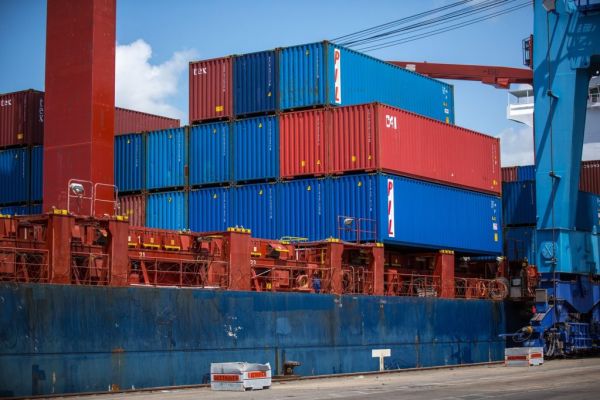The European Parliament has approved a landmark free-trade agreement with Canada, shoring up Europe’s market-opening clout in the face of a populist surge across the Continent and US President Donald Trump’s protectionist tilt.
The European Union assembly’s endorsement of the first EU commercial deal with a fellow member of the group of seven leading industrialised nations paves the way for it to take provisional effect once the Canadian Senate gives its green light, expected within weeks. EU governments and Canada’s House of Commons have already given their approval.
The EU Parliament backed the pact by a vote of 408 to 254 on Wednesday, in Strasbourg, France, fending off a veto drive by far-left and far-right European parties, which have echoed Trump’s criticism of globalisation.
“This is Europe’s answer to Trump’s trade policy,” said Manfred Weber, German head of the Christian Democrats in the 28-nation assembly. “Instead of protectionism, we want partnership. Instead of fear and mistrust of each other, we want openness and even stronger ties with one of our closest allies.”
The agreement with Canada has become a test case for the EU’s political credibility and commercial heft since Britain voted to leave the bloc, a Belgian region nearly scuttled the Canadian accord, and Trump turned the US’s back on multilateral trade pacts. Three years of negotiations on an EU-US trade deal have been put on hold since Trump took office in January and let loose proposals for American import taxes.
“The approval by the EU Parliament of the Canada accord means the biggest political crisis in European trade policy has finally bottomed out,” said Hosuk Lee-Makiyama, director of the European Centre for International Political Economy in Brussels. “Europe’s political capital has stopped bleeding away. It’s an important deliverable, politically.”
The deal, known as the Comprehensive Economic and Trade Agreement (CETA), is slated to end 98% of tariffs on goods from the outset and 99% after seven years (each side plans to dismantle all industrial tariffs and more than 90% of agricultural duties). Markets for services and public procurement are also due to be opened.
The EU says that CETA, which took five years to negotiate, would boost the bloc’s economic output by around €12 billion ($13 billion) a year and expand two-way trade by about a quarter.
Once viewed as the precursor to the much-touted EU-US plan for a Trans-Atlantic Trade and Investment Partnership (TTIP), CETA now looks like a smaller substitute thereto, as European officials expect Trump to put it in the proverbial freezer. In addition, the approval of CETA keeps momentum behind a series of separate EU trade negotiations with other countries, including Japan.
The EU is Canada’s number-two trading partner, after the US, and Canada is the EU’s twelfth biggest, according to the European Commission. EU-Canada trade in goods was €63.5 billion in 2015, while services commerce totalled €27.2 billion in 2014.
Canadian Prime Minister Justin Trudeau, who is due to address the EU Parliament in Strasbourg, signalled last October that the bloc’s raison d’être would be in doubt should CETA falter during the ratification process.
Final ratification of CETA in the EU requires the approval of national, and even some regional, parliaments. During the planned provisional application of the accord, controversial provisions on protection for foreign investors will not apply.
The chapter on so-called 'investor-state dispute settlement' (ISDS) remains a lightning rod, even after being scaled back. The new ISDS provisions foresee an investment court system, in which publicly appointed judges, rather than arbitrators, would hear cases and an appeal tribunal would be established.
National elections later this year, in the Netherlands, France and Germany – three founding EU states in which anti-establishment political forces have made advances – could offer signals about the path toward the final ratification of CETA.
Trade is a core European policy, and the EU’s push over many years to use its economic weight to open markets worldwide has been a central argument for the merits of membership. Should the EU falter at the national level in ratifying the deal with Canada, the bloc risks losing credibility, both with global partners and with a host of its own trade-friendly member nations, long allied on commercial matters with Britain, which is due to trigger by the end of March two years of Brexit talks.
News by Bloomberg, edited by ESM. Click subscribe to sign up to ESM: The European Supermarket Magazine.














